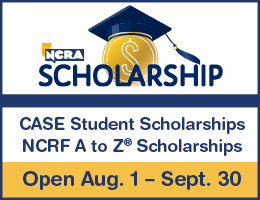By Jen Schuck
Some would say it’s the opportunity of a lifetime. However, it’s a biennial opportunity. Every other year, Intersteno holds a Congress. Typically the event location is somewhere in Europe.
In 2011, I decided to attend the Paris Congress. It is one of my favorite cities and a couple of my friends were going, thus I had every reason to go. I didn’t have a clear understanding of what Intersteno was, but the announcement piqued my interest. My intention was strictly to compete in the realtime competition. The itinerary was only four days in length – a long way to go for eight minutes of dictation. But it was Paris!
It was an exciting four days: Good food, fun with friends, the chance to make new friends, and witnessing some mind-blowing writing skills. Intersteno competitions are the Olympics for reporters, who come from all over the world to compete in a variety of methods, and they start as young as eight years old. Some compete in more than one language. Who knew that there were different types of keyboards around the world? Have you ever seen Chinese in realtime? Korean? Dutch? It’s all possible!
Unfortunately, work got in the way of my attending Ghent in 2013. So when Budapest was announced as the location of the 50th annual Intersteno Congress in 2015, I was not going to miss it.
This time the group of friends expanded, and I was going for a week. Team USA continued to grow. It was so much fun to have six American stenographers meet at the airport in Frankfurt to arrive in Budapest all at the same time. Budapest was hands down the best business trip I have ever had. The weather was ridiculously hot that summer in Europe, but it did not stop us.
Team USA swept the top three spots of the speed competition and took seven of the top ten spots. We also took first and third in the realtime competition.
There is so much more to Intersteno than just the competitions, although the competition was my excuse to go. I learned so much more about this great profession of ours. There are different ways to make a record, and every culture is different. We can learn from each other and teach each other all with the result of prospering the profession.
When I was in Paris, I had the opportunity to try writing on a Velotype. You know that face that people make when you show them our stenographic keyboard and they say, “You type on that?” Well, that was the face I was making when attempting to write on the Velotype. The keyboard has a different layout but outputs in English. No dictionary necessary! It’s based on how words are spelled and not phonetics. Had I never gone to Intersteno, I never would have learned this keyboard even existed.
While in Budapest, I networked with German, British, and Chinese stenographers. I learned it’s no easy feat to send an English theory book to China, but it’s possible. Be on the lookout for the first Chinese stenographer to also write in English very soon.
Lastly, by attending Intersteno I got to know that people like Boris Neubauer exist. He earns his living as a lecturer in Aachen University of Applied Science teaching production and transmission of electricity. His background is in physics. Shorthand is his hobby.
Neubauer chairs the German Research Institute of Shorthand, which maintains the German Shorthand Library, and trains teachers for shorthand and text processing. The systems he reads and writes include the German Unified System, Gabelsberger, Stolze-Schrey, Byrom, and Duployé. Another hobby of his is learning foreign languages. Neubauer has successfully transcribed in the Intersteno competitions in 17 different languages.
I often hear the world is now a global economy. Why should shorthand be any different? Put the 51st Intersteno Congress on your calendar for summer 2017. See you in Berlin!
Jen Schuck, RDR, CRR, CRC, is a CART captioner based in Scottsdale, Ariz. She can be reached at jen@jsreporting.com.







